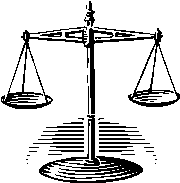by Steve Sonka
When it comes to preventing postharvest loss, we know certain things. We know that reliable data is lacking, and that measurement is key to overcoming the data impediment. We also know that historically, data has been too expensive to gather, although with 21st century technology there is opportunity for innovation that can enhance our capability to measure. Most importantly, however, we know that measuring loss is only a means to improve food system performance. As a means, loss measurements must be employed to inform our efforts to prevent and reduce loss.
But the next question must be, reduce by how much? As the children’s author, Lewis Carroll, asserts, “If you don’t know where you are going, any road will get you there[1].” Postharvest loss has been recognized as a societal problem for some time, reaching back to pronouncements of then Secretary of State Kissinger in the 70’s. However, our progress (or lack of progress) remains difficult to document – maybe because we don’t have a strong sense of where “there” is.
In recent years, media attention devoted to postharvest loss and food waste has grown. This attention has centered on reporting estimates of the magnitude of loss with the implicit suggestion that zero is the appropriate benchmark. But there is another thing we know – that agricultural and food systems operate in the world of biology with uncertainties driven by weather, pests, and economics. Therefore, we should expect that the cost of achieving a zero loss/waste benchmark likely would exceed its benefits. Given all available resources, we still cannot effectively and affordably control the uncontrollable.
Postharvest loss prevention needs data, and ICT innovations make it likely that we will now be able to capture the right kind. But with the scale and complexity of the food system and the constraints it operates within, how we strategically employ the data will matter the most. Alternative to a benchmark of zero, we should be striving to focus global debate and action on interventions which will lead to sustainable prevention of postharvest loss, accounting for the many economic, environmental, and social factors. Such efforts will need to measure loss before and after the intervention, the benefits of loss reduction, and the costs of achieving those reductions.
[1] Lewis Carroll. BrainyQuote.com, Xplore Inc, 2013. http://www.brainyquote.com/quotes/quotes/l/lewiscarro165865.html, accessed September 2, 2013.



No comments yet.